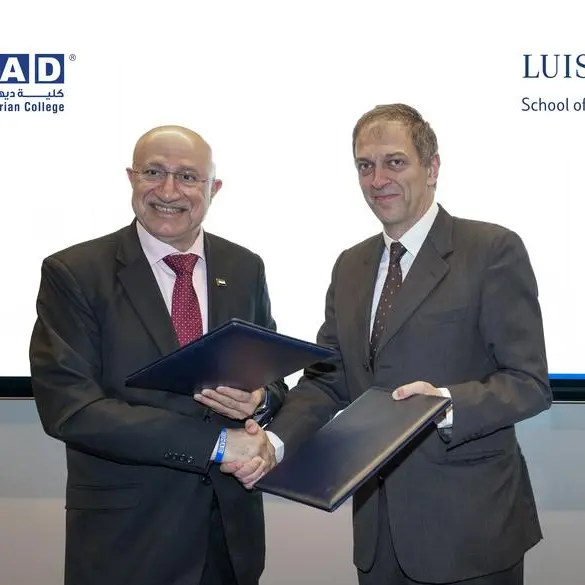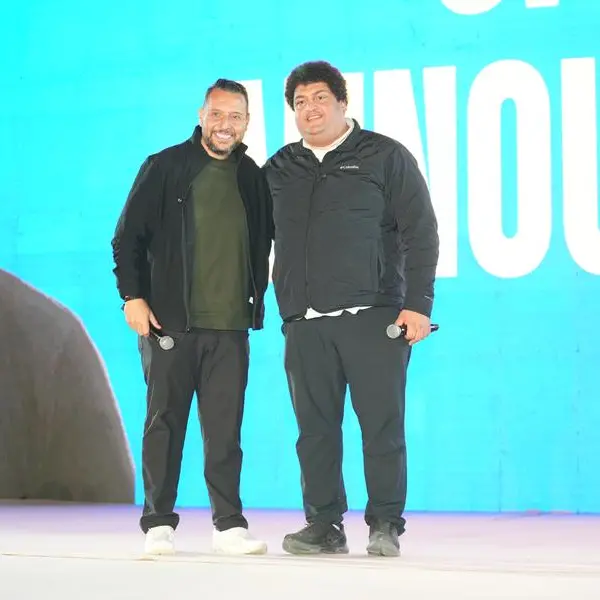PHOTO
Doha: A team led by collaborating researchers from Weill Cornell Medicine-Qatar (WCM-Q), Qatar Foundation (QF) and Weill Cornell Medicine in New York (WCM NY) have assembled a large genomic database on the Qatari people, and have used it to develop an advanced but low-cost screening tool for genetic diseases in this highly distinct Middle Eastern population.
The tool, QChip1, is a microarray capable of detecting, from a blood sample, more than 80,000 different DNA variations in genes linked to hereditary disorders. Costing less than $100 each, QChip1 microarrays will be used to evaluate the risks of such disorders among newborns, couples planning a family and hospital patients—thus advancing personalized medicine in Qatar.
As the researchers demonstrated in their study, published in npj Genomic Medicine, a population-specific screening tool is necessary in Qatar because the Qatari population has a largely distinct set of genetic disorder risk variants, 85 percent of which are not seen in Western populations. Other institutions in the collaboration include Sidra Medicine and Hamad Medical Corporation.
“The genomic database of the Qatari population and the QChip technology provide an extremely accessible, low-cost and powerful resource for reducing the incidence of a wide variety of inherited diseases,” said co-first author Dr. Amal Robay, assistant professor of research in genetic medicine at WCM-Q. “We are pleased to have been able to work on this project with our colleagues at Weill Cornell Medicine in New York and Qatar Foundation to help deliver this important precision screening tool for the Qatari population.”
“Every day we discover more pathogenic variants, which are observed in some countries to be different from the variant observed in other countries,” said co-senior author Dr. Asmaa AlThani, chair of Qatar Genome Program at QF and vice chair of Qatar Biobank Board. “Differences between pathogenic variants in different countries are reported on a daily basis, which keeps driving us to pursue our work in genomics, and focusing on pathogenic evolution and potentially pathogenic variants. With every new variant we observe as unique to Qatar, we take on step forward towards better health care, not only for Qatar, but also for other Middle Eastern populations.”
Thousands of hereditary human disorders, affecting in total about one percent of the human population, arise from pathogenic DNA variations within single genes. These single-gene disorders (SGD) can either be dominant or recessive. For dominant SGDs, the patient can inherit the copy of the gene containing a pathogenic variant from either parent, while for recessive SGDs, the patient needs to inherit the pathogenic variant from both parents in order to manifest symptoms of the disease. Thus, two unaffected parents can be carriers of the pathogenic variant and give birth to an affected child with a 25 percent possibility.
“The QChip1 screening array marks several key milestones for Qatar,” said study co-author Dr. Khalid Fakhro, chief of research at Sidra Medicine. “First, it represents a significant outcome of Qatar’s early investment in generating genomic knowledge on our population. Second, this array is a first for the region, and can be adopted by neighboring countries whose populations share ancestry (and disease mutations) with ours. And finally, it demonstrates the strength of collaboration across the biomedical research community in Qatar, as this truly took a multi-stakeholder effort over several years to achieve a viable product, which will completely transform disease screening for future generations.”
“The important message here is that advancing precision medicine with genetic screening tools for a given population requires an understanding of the specific set of risk variants found in that population,” said study co-senior author Dr. Ronald Crystal, chairman of the Department of Genetic Medicine and the Bruce Webster Professor of Internal Medicine at WCM NY, and attending physician at NewYork-Presbyterian/Weill Cornell Medical Center.
“The cooperation between multiple institutions is helping produce powerful screening tools, and the impact is not only reflected in the power of numbers, but also in the power of science,” said co-first author Dr. Radja Messai-Badji, genomics operations manager at QF’s Qatar Genome Program. “When each entity serves its role within its niche specialty, it leads to well-designed and constantly evolving products for the area of precision medicine.”
“This groundbreaking effort led by Weill Cornell Medicine highlights the effectiveness and translatability of omics and, in particular, genomic projects such as the QChip to implement precision medicine solutions that are likely to improve health care for the populations of Qatar and the wider region,” said study co-author Dr. Khaled Machaca, senior associate dean for research, innovations and commercialization and a professor of physiology and biophysics at WCM-Q.
SGD risk variant screening of newborns, and couples who are planning a family, has long been routine in many countries, at least for more serious SGDs such as sickle-cell anemia. Most databases of SGD risk variants and related screening tools were developed for Western populations, though. SGDs are generally the same across human populations, but the precise DNA changes that give rise to those SGDs are often different from one population to another. Researchers also recognize now that in general, more comprehensive screening could enable more personalized and effective medicine.
Qatar is a good candidate for comprehensive and population-specific screening as traditional marriage practices often bring together two people who carry the same SGD risk variant.
“SGD risk screening has a lot of potential, not only clinically for personalized medicine and family planning, but also scientifically for understanding rare genetic diseases,” said co-first author Dr. Juan Rodriguez-Flores, an assistant professor of research in genetic medicine at WCM NY.
In the study, the researchers assembled a large dataset, from their own and others’ sequencing of DNA from more than 8,000 Qataris, to construct the Qatari Genome Knowledgebase of known risk variants.
Out of the millions of recorded variants in the Knowledgebase, they selected 83,542 known or likely disease-causing variants, in a total of 3,438 genes, to generate the probes for QChip1. Chips such as these are called genotyping microarrays, and contain arrays of short DNA strands each of which will bind to and register the presence of a DNA sequence of interest.
The researchers demonstrated QChip1 screening by using the chip to analyze DNA from 2,707 Qataris. In this large sample of individuals, they identified a total of 32,674 distinct risk variants, with an average of 134 risk variants per individual. They also found that these variants were relatively Qatari-specific, only about 15 percent of the variants being present in comparative DNA samples from European Americans, South Asian Americans, African Americans and Puerto Ricans. Even in samples from nearby Kuwait, Iran, and the United Arab Emirates, only about half of the detected Qatari variants were evident.
-Ends-
About Weill Cornell Medicine - Qatar
Weill Cornell Medicine - Qatar is a partnership between Cornell University and Qatar Foundation. It offers a comprehensive six-year medical program leading to the Cornell University M.D. degree with teaching by Cornell and Weill Cornell faculty and by physicians at Hamad Medical Corporation (HMC), Aspetar Orthopedic and Sports Medicine Hospital, the Primary Health Care Corporation, the Feto Maternal Center, and Sidra Medicine, who hold Weill Cornell appointments. Through its biomedical research program, WCM-Q is building a sustainable research community in Qatar while advancing basic science and clinical research. Through its medical college, WCM-Q seeks to provide the finest education possible for medical students, to improve health care both now and for future generations, and to provide high quality health care to the Qatari population.
For more info, please contact:
Hanan Lakkis
Associate Director, Media and Publications
Weill Cornell Medicine - Qatar
hyl2004@qatar-med.cornell.edu
© Press Release 2022
Disclaimer: The contents of this press release was provided from an external third party provider. This website is not responsible for, and does not control, such external content. This content is provided on an “as is” and “as available” basis and has not been edited in any way. Neither this website nor our affiliates guarantee the accuracy of or endorse the views or opinions expressed in this press release.
The press release is provided for informational purposes only. The content does not provide tax, legal or investment advice or opinion regarding the suitability, value or profitability of any particular security, portfolio or investment strategy. Neither this website nor our affiliates shall be liable for any errors or inaccuracies in the content, or for any actions taken by you in reliance thereon. You expressly agree that your use of the information within this article is at your sole risk.
To the fullest extent permitted by applicable law, this website, its parent company, its subsidiaries, its affiliates and the respective shareholders, directors, officers, employees, agents, advertisers, content providers and licensors will not be liable (jointly or severally) to you for any direct, indirect, consequential, special, incidental, punitive or exemplary damages, including without limitation, lost profits, lost savings and lost revenues, whether in negligence, tort, contract or any other theory of liability, even if the parties have been advised of the possibility or could have foreseen any such damages.




















